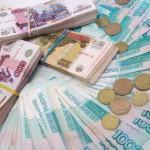Copper fell for a second day after U.S. lawmakers failed to break the political impasse which entered a second week and dampened market sentiment, while Chinese buyers waited for prices to drop.
On the Comex division of the New York Mercantile Exchange, copper futures for December settlement fell by 0.81% to $3.266 per pound at 9:05 GMT. Prices held in range between days high of $3.297 and low at $3.259 a pound, the weakest level since October 2. The industrial metal slipped 0.2% on Tuesday and extended its weekly decline to over 1%.
Market sentiment remained damped as the ongoing government shutdown in the U.S. threatened to impact negatively the economys fourth quarter growth. According to JPMorgan analysts, every week of shutdown reduces the economic expansion in the last three months by an annualized 0.12%. IHS Inc. in Lexington, Massachusetts, said the government shutdown costed the economy $1.6 billion in lost output last week.
The Congressional Budget Office said that the government will run out of cash between October 22 and October 31, if the debt ceiling does not get extended by October 17. This would result in an unprecedented U.S. default, whose consequences will be far more devastating than the ones which followed Lehman Brothers bankruptcy. Broad expectations that the impasse will be resolved before the October 17 deadline however limited losses.
Alexandra Knight, economist at National Australia Bank in Melbourne, said for CNBC: “Everyone seems to be waiting to see what happens in the U.S. … we are already seeing markets being a bit shaky. Our central forecast is that it will be resolved. Given we dont see it having a material impact on GDP growth, any shift in commodity prices as a result of the shutdown are likely to be short lived.”
The metal drew some support yesterday after a private survey showed that China’s service sector expanded in September but with a slower pace than in August. The HSBC China Services Business Activity Index marked a moderate rate of increase, posting at 52.4 in September, down from 52.8 in August. In the meantime, the HSBC China Composite Output Index, which covers both the manufacturing and service sectors, stood at 51.2 in September, down from 51.8 in August. However, output growth has now been recorded for a second month with manufacturers reporting a further increase in order book volumes.
Inventories tracked by the London Mercantile Exchange fell for a 24th session to 517 100 tons yesterday, the lowest since March.
Prices however were pressured after the International Monetary Fund trimmed its global growth forecast for this year to 2.9%, down from previously estimated at 3.1% in July. Next years projection was trimmed to 3.6% from Julys prediction for 3.8%.
Olivier Blanchard, IMF chief economist, commented: “Advanced economies are gradually strengthening while growth in emerging-market economies has slowed. This confluence is leading to tensions, with emerging-market economies facing the dual challenges of slowing growth and tighter global financial conditions.”
A recovering U.S. dollar also weighed on the metal. The U.S. dollar index, which measures its performance against six major peers, rose by 0.42% to 80.41 at 9:06 GMT. The December contract rose to a session high of 80.43 during European trading, while days low stood at 79.96. The U.S. currency gauge rose by 0.1% on Tuesday and extended its weekly advance to 0.25%, recovering from October 3s 8-month low. Strengthening of the greenback makes dollar-priced commodities more expensive for foreign currency holders and reduces their appeal as an alternative investment.





